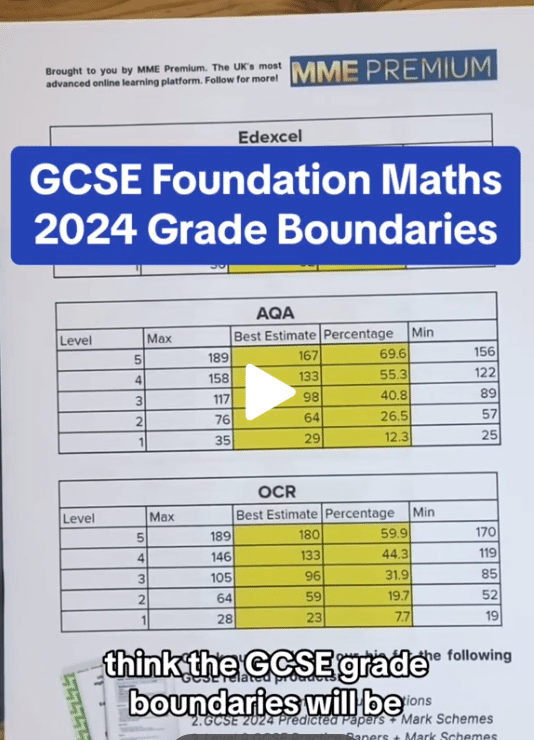Estimating
Estimating Revision
Estimating
The way we estimate answers to calculations is simple – we round every number involved to 1 significant figure, unless stated otherwise, and then perform the calculation with those numbers instead.
Make sure you are happy with the following topics before continuing.
Type 1: Simple Estimating
These types of questions are the easiest you will see.
Example: Estimate the answer to \dfrac{8.21}{3.97} \times 31.59.
Step 1: Round each number to 1 significant figure:
8.21 rounds to 8,
3.97 rounds to 4,
31.59 rounds to 30.
Step 2: Put the rounded numbers into the equation and calculate:
\dfrac{8.21}{3.97} \times 31.59 \approx \dfrac{8}{4} \times 30 = 2 \times 30 = 60.
Note: The \approx symbol means “approximately equal to”.
Type 2: Estimating with Equations
Estimating with equations is a little bit more difficult, since we also have to interpret the question.
Example: The formula for the force, F on a moving object is F = ma, where m is the mass and a is the acceleration.
Estimate the force on an object which has mass 5.87 kg and acceleration 24.02 m/s^2.
Step 1: Round the numbers in the question to 1 significant figure:
5.87 rounds to 6,
24.02 rounds to 20.
Step 2: Put the rounded numbers into the equation and calculate:
\text{Force } = 5.87 \times 24.02 \approx 6 \times 20 = 120
Type 3: Estimating Square Roots
Estimating square roots is the hardest type of estimating question you will see, and is only for HIGHER students.
Example: Find an estimate for \sqrt{40}.
The square root of 40 will be some number that we can square to make 40.
Step 1: Find 2 square numbers, one on each side of the number we are given:
We know that
6^2 = 36 and 7^2 = 49
So, the answer must fall somewhere between 6 and 7.
Step 2: Choose an estimate based on which square number it is closest to:
Since 40 is 4 away from 36 but 9 away from 49, we can conclude the answer will be somewhat closer to 6.
Therefore, 6.3 is a suitable estimate for \sqrt{40}.
Estimating Example Questions
Question 1: Estimate the value of \dfrac{9.02 + 6.65}{0.042 \times 11}
[2 marks]
Round each number to 1 significant figure:
9.02 rounds to 9,
6.65 rounds to 7,
0.042 rounds to 0.04,
11 rounds to 10.
Therefore we get,
\dfrac{9.02 + 6.65}{0.042 \times 11} \approx \dfrac{9 + 7}{0.04 \times 10} = \dfrac{16}{0.4}
To make this division easier, multiply the top and bottom of the fraction by ten, to find
\dfrac{16}{0.4} = \dfrac{160}{4} = 40
Question 2: Estimate the answer to \dfrac{57.33-29.88}{8.66-5.55}
[2 marks]
Rounding each number to 1 significant figure:
57.33 rounds to 60
29.88 rounds to 30
8.66 rounds to 9
5.55 rounds to 6
Therefore, we get:
\dfrac{57.33-29.88}{8.66-5.55}\approx\dfrac{60-30}{9-6}=\dfrac{30}{3}=10
Question 3: James wants to buy 5 pens and 3 pencils. The pens cost \pounds1.89 each and the pencils cost 45p.
Find an estimate for how much this will cost James in \pounds.
[3 marks]
Because the answer needs to be in pounds, we should turn the cost of the pencils into pounds first.
45p = \pounds0.45
Now we can start estimating.
1.89 rounds to 2
0.45 rounds to 0.5
And now we need to multiply these amounts by how many of each he wanted.
\textrm{(Pens) }\pounds2\times5=\pounds10
\textrm{(Pencils) }\pounds0.50\times3=\pounds1.50
And now all we need to do is add them together.
\pounds10+\pounds1.50=\pounds11.50
Question 4: In order to take his family to a show, Sergio will have to purchase 2 adult tickets and 3 child tickets. Given that an adult ticket costs £32.60 and a child ticket costs £17.50, work out an estimate for how much it will cost Sergio to take his whole family to this show.
[3 marks]
Round each number to 1 significant figure:
32.60 rounds to 30,
17.50 rounds to 20,
Therefore, the approximate cost of the 3 child tickets is 3 \times 20 = \pounds 60.
The approximate cost of the 2 adult tickets is 2 \times 30 = \pounds 60.
Thus, the approximate total cost is 60 + 60 = \pounds 120.
Question 5: Find an estimate for \sqrt{98}.
State if your answer is an overestimate or underestimate.
[2 marks]
First, we need to find 2 square numbers either side of 98.
We know that
9^2 = 81 and 10^2 = 100
So the answer must be between 9 and 10.
Since 98 is only 2 away from 100, but 17 away from 81, we can conclude that the solution is going to be much closer to 10.
Therefore, the estimate is
\sqrt{98} \approx 9.9
Estimating Worksheet and Example Questions
(NEW) Estimating Exam Style Questions - MME
Level 4-5GCSENewOfficial MMEEstimating Drill Questions
Estimating - Drill Questions
Level 4-5GCSEEstimating (2) - Drill Questions
Level 4-5GCSEEstimating (3) - Drill Questions
Level 4-5GCSE
MME Premium Membership
£19.99
/monthLearn an entire GCSE course for maths, English and science on the most comprehensive online learning platform. With revision explainer videos & notes, practice questions, topic tests and full mock exams for each topic on every course, it’s easy to Learn and Revise with the MME Learning Portal.
Sign Up Now



